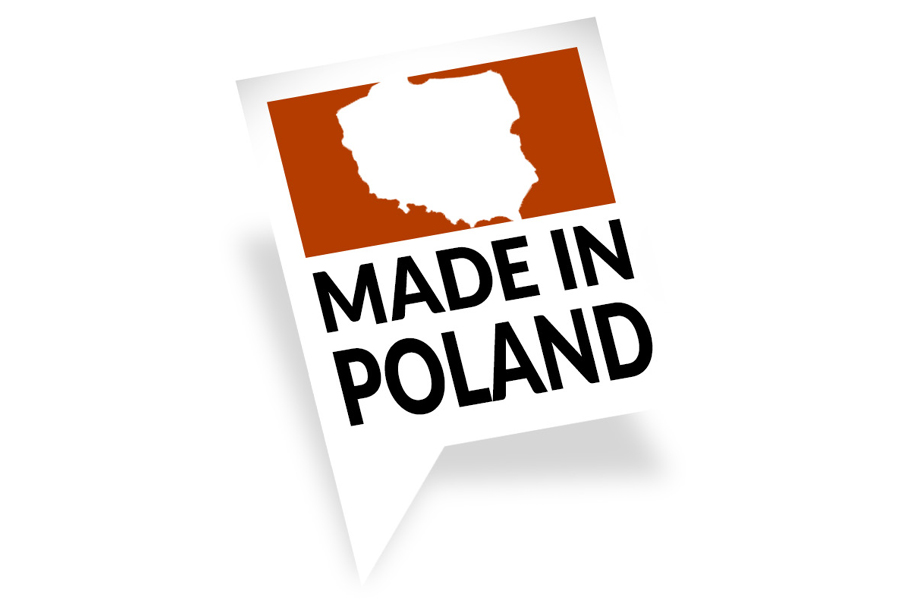 Dorota Kałowska
Dorota KałowskaExpert of the Polish Chamber of Commerce
Strategist at Cobalt Spark, brand consulting
For 17 years, she has been helping Polish and international companies consolidate their brands, and for more than 10 years, she has been supporting trade chains and suppliers with regard to implementation of the private label offer. She conducts numerous lectures and trainings in the area of branding, effective use of packaging in brand strategy, as well as private label image management. Contact: d.kalowska@cobaltspark.pl
On the domestic market, the situation is not simple either – the ubiquitous price war between trade chains, trade consolidations, growing shares of private labels, as well as the development of own production by trade chains, are only some of the phenomena affecting the condition of Polish brands and producers. Therefore, many of them are now facing a completely new challenge of developing strategies to enable consolidation of one’s position on export markets as well. One can sell more through building one’s own distribution, increasing supplies to the current contractors, or establishing cooperation with new partners. This statement is neither new nor revealing, yet every company seriously concerned with the development of exports must answer the question whether it is fully prepared for the new situation, with regard to assortment, logistics and marketing alike.
Analyzing the structure of Polish food exports, it is easy to see that sales of Polish brands account for only a few percent of the total trade – the rest is made up by raw materials and unprocessed food, semi-finished products, as well as production for a contractor’s private label. Why have so few Polish producers succeeded, so far, in introducing their brands to foreign markets? Reasons are many and it would be hard to mention all of them here, yet it is worth taking a closer look at what we can do to make Polish brands struggle effectively for their place on export markets.
Development of a unique offer
In view of the growing price pressure, a possible defense strategy is the development of a unique offer which would be hard to compare directly with competitive products. In this area, Poland really has a lot to offer – from regional dishes and products, through preparations, with particular focus on pickles, cured meats, vodka, high-quality dairy or cereal products.
In the Global Pricing Study 2016, conducted by Simon-Kucher & Partners, as much as 66% of the companies surveyed in Poland anticipate that the implementation of new products and innovations will minimize the adverse effects of direct price competition. Here, it is legitimate to ask: if a large part of Polish producers are prepared to implement innovations on the domestic market, why not use this flexibility to compete efficiently on export markets as well? I use the word ‘flexibility’ for a reason, since it is the adaptability and quick response I would see as a source of potential success.
Understanding of consumer needs and expectations
Building a unique offer must affect all of its areas – assortment is just one of them. An obvious challenge for Polish brands on export markets is the development of a unique and innovative image. The communication of the quality and values carried by the brand needs to be improved as well. Particular attention should be given to packaging, in view of often limited promotion possibilities, an essential element carrying the values and telling the story of a brand. Unified mainstream products will always remain just one of many alternatives on a row of similar products on the shelf. We have excellent designers, a rich culture and traditions which can and should be drawn upon when working on the image of national brands. As long as the producer does not decide to implement a strategy based on an imitation brand, there is no reason for him to be consciously exposed to direct price wars by offering ordinary, inconspicuous products.
On almost every market, efficient competition also requires good understanding of consumer needs and expectations. This is why close cooperation with distributors is so important in consolidation of the position of Polish brands on export markets. Distributors have the necessary knowledge of consumers, and on their part, they expect support and a coherent concept of brand promotion on a specific export market. The very presence of Polish brands on the shelves is just half of the success, yet with lack of a unique image, this half is most likely to become a potentially lost opportunity.
Coherent promotion policy of quality and Polishness
A separate question that should be addressed here is the brand strength of Poland and the Polishness of products, as elements distinguishing our brands internationally. Unfortunately, for the last 25 years, we have failed to develop a coherent image of Poland, due to which, the Polishness of products does not usually bring unambiguous positive associations.
However, Polish food is characterized by really high quality appreciated worldwide. On a macro level, all we need is a coherent and consistently implemented policy for the promotion of Polish food in the international arena – the first steps in this direction have already been taken, both at the central level and in individual sectors. On a micro level, on the other hand, all producers have to find their own answer to the question whether their products have the potential to offer a new, unique value on a given market. On a totally subjective note, I can only state that, working on an everyday basis with Polish producers, I can see tens of products with potential to be noticed and appreciated on export markets. Before that however, producers themselves have to believe they can provide really unique and highly competitive products. This is a totally necessary prerequisite to build the strength of our national brands in the international arena.












